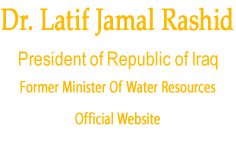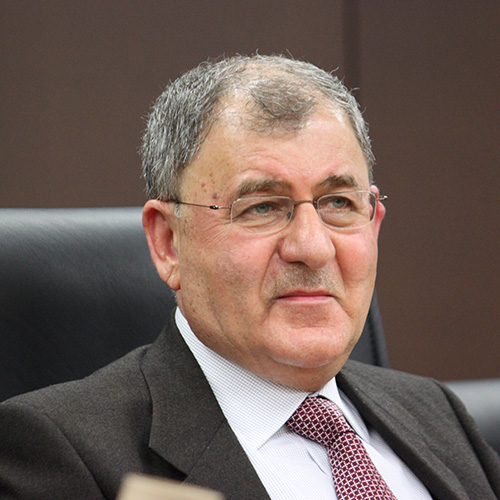By Azos L. Rashid
Just a brief glance through our history confirms that Kurdistan has tackled and overcome many obstacles. This is such a vital time of the realigning of powers in the region and the emergence of the terror organisation ISIS. Yet I find it troubling that the most dangerous and urgent problem is one of our own doing: the Economy. The Kurdistan Regional Government (KRG) must deal with this by seeking genuine solutions and amending its policies, rather than by what they are doing: sticking their heads in the sand, denial or diverting attention through talk of independence.
The problem isn’t just one of a budget dispute or the delayed payment of government workers’ salaries: it is bigger than that, concerning the economy of the KRG as a whole. The fact is that all our economic policies have failed, which leads to the KRG continuing to go cap in hand to Baghdad, with the same old tired arguments over and over again.
Greece is a nation suffering huge financial difficulties. They have a much more advanced financial system, policies and institutions than the Kurdistan Region, and yet still they are not getting any international help. Why? because the international economic world understands that, by giving them a bailout loan, they would simply be throwing good money after bad. So, without reform in all the relevant sectors and a review of the financial laws and conduct, a bailout would be pointless. The Kurdistan Region is in exactly the same boat, but with a greater deficit when compared to the GDP, and without any credible financial institutions, a lack of industry, with a KRG and Ministry of Natural Resources (MNR) that would like to blame everyone’s policies other than their own.
Just looking at the MNR’s annual reports would suggest that it is acting as the Ministry of Finance, Planning, Public Policy, Industry, and Foreign Affairs. Fortunately for many in the Government they can put the blame on ISIS, buying themselves some time – and this is the problem. ISIS and our economy do not go hand in hand, and those responsible in the government don’t seem to be doing anything constructive with the time.
I know the PUK parliamentarians have started to question the KRG’s policies, but this needs a national debate, and I would like to urge all news outlets, journalists, students, teachers and professionals from all parties to start seriously addressing the following issues concerning the economy of the Kurdistan Region of Iraq:
- The level of debt of the KRG is now of crippling proportions, constituting at least 200% of the budget of 2014-15. Government debt now at an estimated $25 billion+, although it is very difficult indeed to get an accurate figure from the KRG.
- This is because, perhaps, no-one in the KRG has a full view of the debt portfolio. Knowledge appears to be partially held, allowing the further rapid accrual of debt.
- These are a few aspects of the debt that are perhaps known:
- $5 billion pension fund shortfall
- 2013 deficit of $3 billion covered by freezing $10 billion bank assets.
- 2014 budget of $14 billion has a deficit of $6 billion
- Since January 2014, the KRG is incurring at least a further $500 million debt per month due to shortfall from Baghdad.
- The oil sums do not work. Production of oil since 2004 has cost $9 billion, while $10 billion was received by the KRG up to January 2014.
- KRG producing oil from Avana and Bai Hassan is likely to be challenged by Baghdad as being unconstitutional. And Baghdad would be correct.
- To achieve the budget target of $1 billion per month, the KRG would need to significantly increase production, to perhaps 1 mbpd, and also ensure that less discount is given to Turkey.
- The transfer of Kurdish crude to Turkey and the return of refined products needs to be fully notarised and documented.
- If producing IOCs (DNO, Keystone, Genel) are not paid, they will likely sell their blocks, or collapse. Either way, the public relations picture for Kurdistan would not be positive. IOCs only get 15% of barrel value, and are already struggling.
- The MNR works very slowly. Oil ministries should reflect the complexities of the industry, and this requires highly segmented and specialised offices. MNR does not have this.
- The KRG and MNR also need to be transparent about the terms of contracts signed, such as the 50 year gas deal with Turkey. Why is the KRG giving away discounted gas to Turkey, yet importing gas at a higher price from Iran?
- The serious matter of oil smuggling needs to be addressed, not by hearsay and rumours, but by proof and very real consequences.
- The KRG has no savings. It has been in receipt of significant funds since 2004, and especially in 2012 and 2013, yet no ‘regional’ wealth fund has been created. Instead, money comes in, goes out, or is ‘lost’. If the KRG had set up a wealth fund, then there would at least have been some resources available to get through this current crisis.
- But the strategy would also require a much slimmer Kurdish bureaucracy, and measures to genuinely put a halt to issues that are hurting our bureaucracy such as “ghost employees”.
- Why is the KRG not using KRG-owned banks rather than the privately-owned Kurdistan International Bank for KRG-related financial dealings?
- The giving away of KRG public land for private enterprise must be stopped, because it has depleted the KRG of billions of dollars of much needed assets.
- We need to focus the KRG Parliament to create and implement laws to:
- Limit the powers of a KRG branch making unilateral decisions.
- Help build the foundations for a strong economy: for example, the KRG still doesn’t have a debt law.
- The KRG strategy of seeking ‘soft’ loans off international banks, countries, organisations is doomed since KRG is not sovereign. The IMF, for example, can only give to a sovereign entity.
- We need to get out of the mindframe of hitching Kirkuk’s economy to the KRG: to put it bluntly, the KRG is trying to hide its shortcomings with Kirkuk’s oil. The only thing that this will achieve is a cut in Kirkuk’s petro-dollars and in Baghdad’s budget allocation for the Governarate.
- The Baghdad – Erbil deal is actually very favourable to the Kurds, to such an extent that it is reasonable for Basra to argue that it is subsidising Kurdistan’s existence. Exporting through SOMO also removes the problem of discounting independent oil exports.
- A possible way forward to consider for Kirkuk is the creation of a ‘Kirkuk Oil Company’, to be owned jointly by the KRG, the Governorate of Kirkuk, and the Government of Iraq, thus negating the problems of the Kirkuk cluster.
We are sitting on a sea of natural resources, surrounded by fertile land, and have a population that, given the chance, has shown they can thrive economically. So it genuinely sickens me when I visit the homes of our fallen heroes who have died for our freedom, only to see their children wait to live on hand-outs. It is not right.
…………………………………………
Azos L. Rashid is a former diplomat to the UN and WTO


